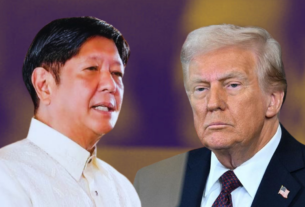Mexican President Claudia Sheinbaum announced plans to introduce a constitutional reform to strengthen the country’s sovereignty. The move comes after the U.S. designated several Mexican drug cartels as foreign terrorist organizations.
Sheinbaum emphasized that Mexico will not tolerate any foreign intervention that threatens its independence. She stated that violations of Mexican territory by land, sea, or air would be unacceptable under any circumstances.
The proposed reform aims to reinforce legal protections against any external actions that could undermine national sovereignty. It is expected to address concerns over potential military or law enforcement operations by foreign governments.
Tensions between Mexico and the U.S. have escalated over security issues, particularly regarding drug trafficking and cartel violence. Some U.S. lawmakers have suggested military intervention to combat cartels, sparking backlash from Mexican officials.
Sheinbaum’s announcement underscores her administration’s commitment to defending Mexico’s territorial integrity. She warned that any foreign intrusion would be considered a violation of international law and diplomatic agreements.
The U.S. government has increased pressure on Mexico to take stronger action against organized crime. The designation of cartels as terrorist organizations could open the door for expanded U.S. enforcement measures, including sanctions and cross-border operations.
Mexican officials argue that security challenges should be handled through bilateral cooperation, not unilateral actions. They maintain that Mexico has the capability to address criminal organizations without foreign interference.
Sheinbaum reaffirmed Mexico’s dedication to combating drug-related violence through national security efforts. Her government has prioritized intelligence-led operations and cooperation with international partners to disrupt cartel activities.
The proposed constitutional reform will likely be debated in Mexico’s Congress in the coming months. Lawmakers are expected to assess how the changes would affect existing security policies and international relations.
Political analysts believe Sheinbaum’s stance reflects a broader push to assert Mexico’s autonomy in foreign affairs. National sovereignty has been a key issue in past administrations, particularly in response to U.S. pressure on security matters.
Public opinion in Mexico largely supports policies that prevent foreign intervention in domestic affairs. Many citizens view past U.S. involvement in Latin America as a precedent for potential overreach in Mexican security operations.
Sheinbaum’s administration will continue diplomatic discussions with U.S. officials to manage tensions over cartel violence. Both countries share economic and security interests, making cooperation essential despite political differences.
The reform proposal is expected to draw support from Sheinbaum’s political allies, but opposition parties may raise concerns about its implications. Some critics argue that rejecting U.S. assistance could hinder efforts to curb cartel influence.
Sheinbaum has positioned herself as a defender of Mexico’s sovereignty while promoting strategic partnerships. Her administration’s challenge will be to balance national security needs with maintaining strong diplomatic ties with the U.S.
As discussions move forward, Mexico’s stance on sovereignty will remain a central theme in foreign policy. The outcome of the proposed reform could shape future U.S.-Mexico relations and influence regional security strategies.




